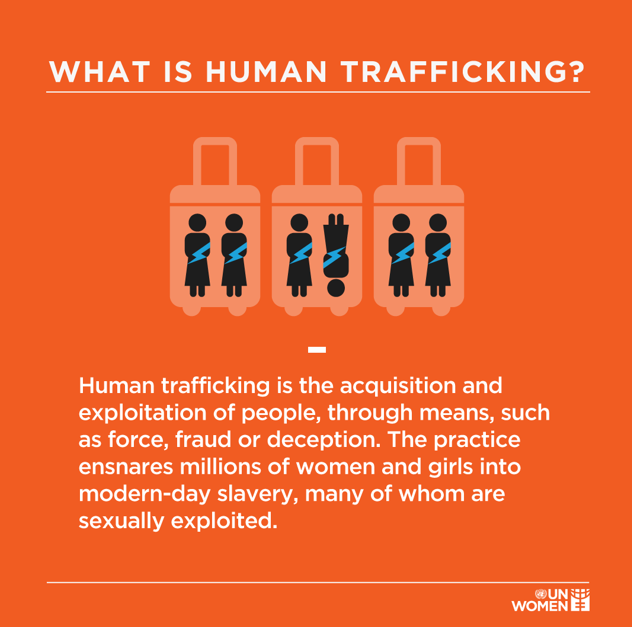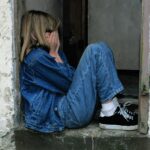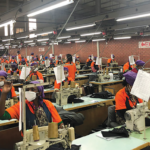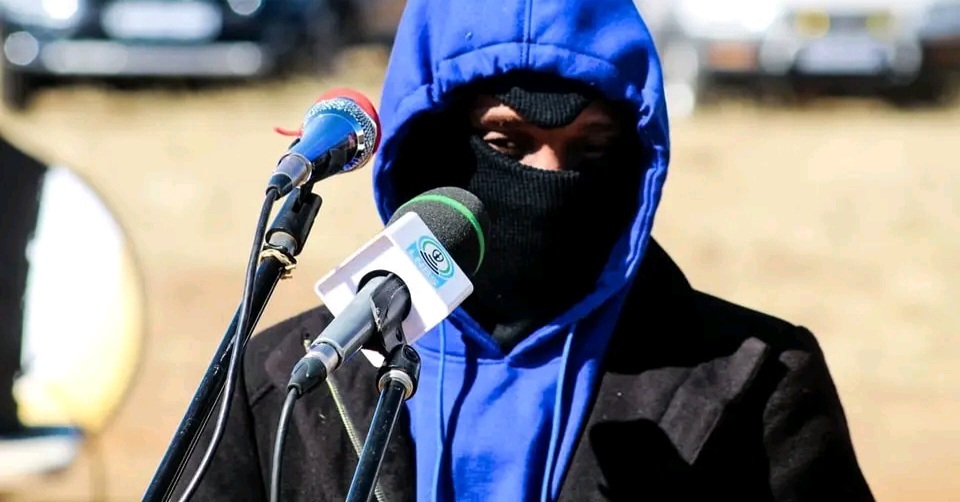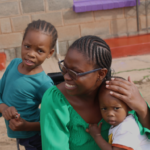… Mosotho woman’s nightmare in Welkom
Lineo*, a 31-year-old Mosotho woman, carries a lasting and painful reminder of the horror she endured in a human trafficking ring in Welkom, South Africa, a one-year-old child, conceived through repeated rape by her captor.
Lineo’s story offers a chilling glimpse into the exploitation faced by many Basotho women seeking employment across the border, exposing a brutal underworld where promises of work often mask exploitation, abuse, and lifelong trauma.
On October 20, 2023, she received a phone call that seemed like a lifeline. A friend told her about a job opportunity in Welkom, a glimmer of hope after months of unemployment. The offer included free transport and food, with only a blanket needed.
“I was so happy I got a job,” she recalls, explaining that she was so excited she even forgot she did not get health services at the clinic that day.
Her mother, equally hopeful, agreed to let her go.
The next day, Lineo travelled to Maputsoe, where she met a man who took her and another woman across the border. They arrived in Welkom at midnight. The two women were separated and Lineo was taken to a guesthouse, while the other was dropped off elsewhere.
The following morning, Lineo met a woman she believed was the manager. She was interviewed and offered a salary of M2,500 per month. She was “loaned” M200 for food, an amount to be deducted from her wages.
What she did not realise was that the loans came with a 30 percent interest rate, and even her transport from Lesotho would be charged back to her.
Soon after, the true nature of her “employment” was revealed. The guesthouse owner demanded sex. When she refused, he raped her. He then bluntly informed her that she had been brought there to provide sex services.
“We were just sex slaves, in simple words,” Lineo says.
She later discovered she was not alone. Another female worker confided that she had also been raped by the same man. Over time, more victims emerged, women too frightened to speak up, all trapped in silence and fear.
The owner ran several operations, including a farm, the guesthouse, and the sex work ring. Despite being moved from one part of the business to another, Lineo continued to be assaulted by the owner.
He never used protection. Eventually, Lineo became pregnant.
Today, she is raising a one-year-old child born of that abuse, an innocent life that serves as a daily reminder of her trauma.
After a month in captivity, Lineo saw a narrow window of escape. She pretended she needed to sort out her passport and confided in another girl. Together, they fled.
After deductions for her “expenses”, Lineo was given only M1,100, but it was enough to get home.
Upon her return, her friend connected her with Beautiful Dream Society, an organisation that provided counseling sessions until November last year.
However, Lineo still struggles with the emotional burden of raising a child conceived through such trauma and believes she needs further support.
Her mother recalls the heartbreak of watching her daughter return home in tears, forever changed by the experience.
“I thought she had found a job. But when she came back, she was just crying,” she says.
Lineo’s story is not unique. Many of the women working for the same trafficker were Basotho, and several remain trapped. She says others who have escaped share similar stories.
Her plea is urgent: “People should investigate the jobs they are being told about before they go. Welkom has many places like the one I escaped from.” She warns that Welkom has many places like the one she escaped from.
Investigations reveal that the farm Lineo mentioned is part of a long-standing human trafficking syndicate. In January 2018, the Daily Dispatch published an exposé titled “Inside Free State Farm Suspected Human Trafficking Lair,” detailing the rescue of 10 people from Lesotho and South Africa and the arrest of six suspects.
That article described a grim setting, including records of sex transactions and evidence of a larger operation trafficking women from across southern Africa.
A cleaner at the time said: “There are all kinds of girls, Basotho, South Africans. They are guarded. You can buy a girl like you buy alcohol.”
Sources in Welkom confirm that “Khune Village”, where the guesthouse is located, is notorious for prostitution and the guesthouse has operated for many years.
“Everyone knows what’s happening there,” one resident said. “The owner is very much feared.” Local rumours also suggest that “brown envelopes,” bribes, may be helping to keep the operation running without legal consequence.
Many remain silent, too scared to come forward, or simply unaware that what they have endured constitutes trafficking.
The South African Police Service (SAPS) in Free State confirmed that Khune Village is a licensed liquor establishment. However, it remains unclear whether the guesthouses are legally operating.
Brigadier Motantsi Makhele stated that two rape cases linked to the area were investigated by the HAWKS and finalised in court in the past two years. Makhele added that police patrols in the area have increased, and there have been no recent reports filed at Welkom SAPS relating to the liquor establishment.
However, it remains unknown whether the trafficker in Lineo’s case has faced any legal action.
Lesotho experiences trafficking in various forms, primarily forced labour and sexual exploitation. Vulnerable populations, especially women, children, and unemployed youth, are often lured by false promises of education, employment, or better opportunities in South Africa and elsewhere, only to be subjected to abuse and exploitation.
Internal trafficking also occurs, with children being exploited for domestic work, street vending, and cattle herding, often under coercive or exploitative conditions.
Poverty, high unemployment, limited law enforcement capacity, and porous borders contribute significantly to the persistence of trafficking in the country.
Although the country has laws criminalising human trafficking, implementation has been inconsistent due to limited resources, lack of specialised training among officials, and weak victim protection mechanisms.
In recent years, the government has partnered with civil society and international organisations to raise awareness and build capacity, but sustained efforts are needed to prevent trafficking, protect victims, and prosecute offenders effectively.
Summary
- Lineo*, a 31-year-old Mosotho woman, carries a lasting and painful reminder of the horror she endured in a human trafficking ring in Welkom, South Africa, a one-year-old child, conceived through repeated rape by her captor.
- “I was so happy I got a job,” she recalls, explaining that she was so excited she even forgot she did not get health services at the clinic that day.
- Today, she is raising a one-year-old child born of that abuse, an innocent life that serves as a daily reminder of her trauma.

Ntsoaki Motaung is an award-winning health journalist from Lesotho, specializing in community health stories with a focus on sexual and reproductive health and rights, as well as HIV. She has contributed to platforms like “Be in the KNOW,” highlighting issues such as the exclusion of people with disabilities from HIV prevention efforts in Lesotho.
In addition to her journalism, Ntsoaki serves as the Country Coordinator for the Regional Media Action Plan Support Network (REMAPSEN). She is also a 2023 CPHIA Journalism Fellow.


